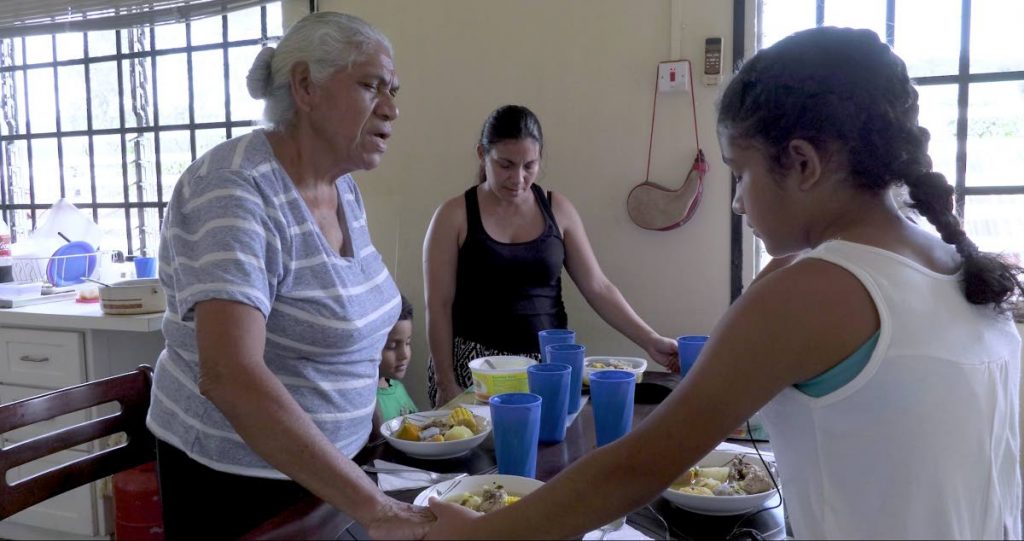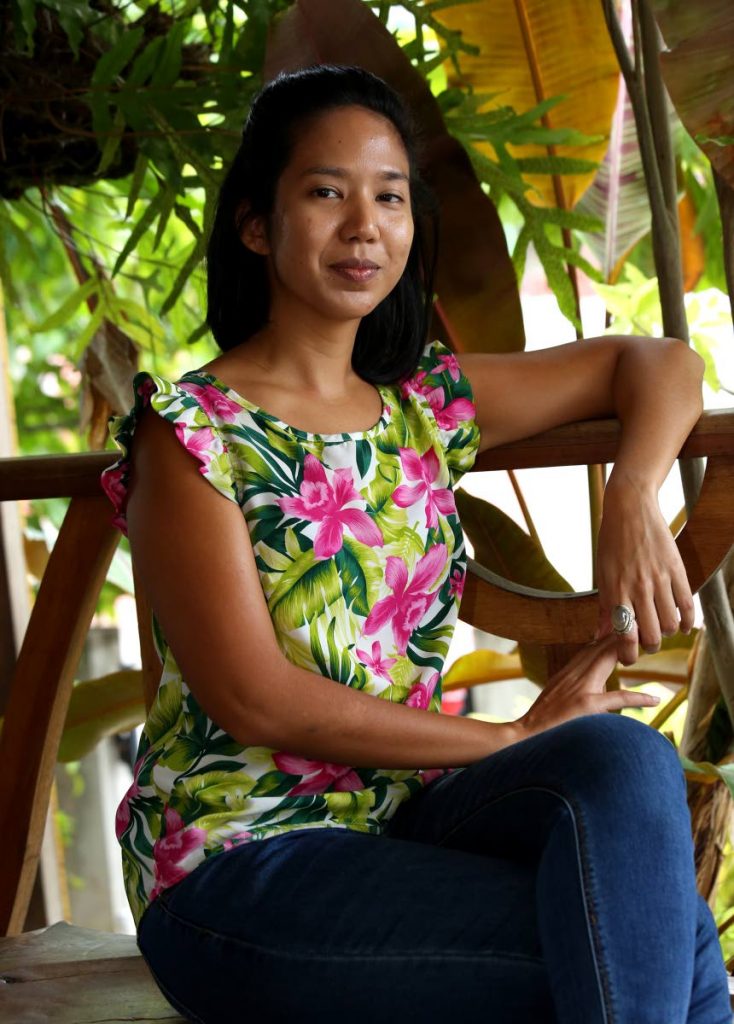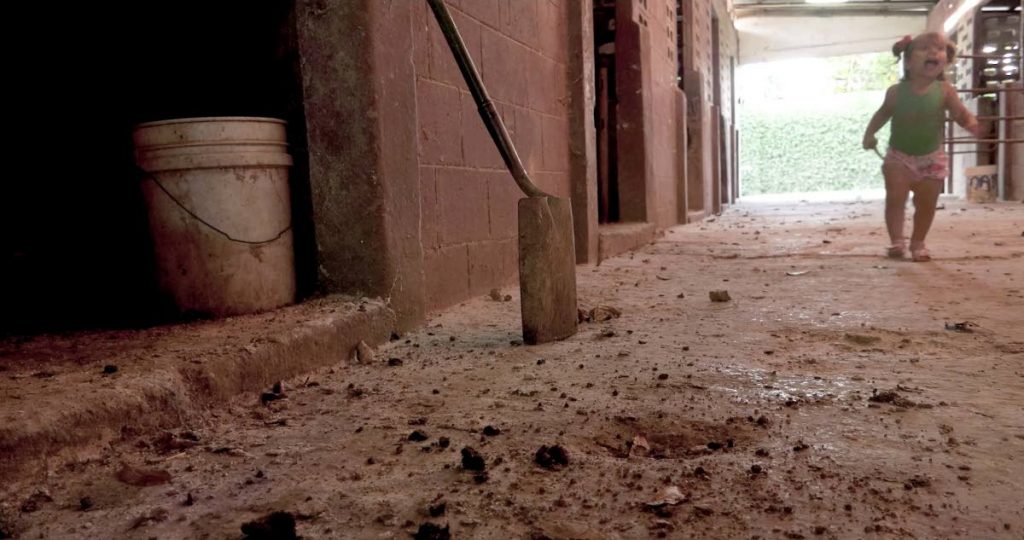Nearest Neighbours: Documentary explores life in TT for Venezuelans

The newest documentary by Rhonda Chan Soo takes a look at the life of Venezuelan refugees, asylum seekers, and migrants who have made their way to TT over the past several years.
Chan Soo, 31, is a film director at Bird’s Eye View Productions Ltd and a documentary filmmaker. Nearest Neighbours highlights some of the issues Venezuelans have been experiencing and facing, including xenophobia and a lack of legal rights.
It follows four main sets of characters over a four-month period — January to April — and includes interviews and shots of the families interacting at their homes. One character is an award-winning journalist who received death threats because of his work and fled to TT with his family three years ago. The others are a couple with three young children and their grandmother; a woman living in a horse stable with her husband and 50 other asylum seekers while their four children remain in Venezuela; and a computer engineer turned construction worker who is here with his two children and wife, who was a spa-owner and activist.
She said even though those she interviewed work hard at menial jobs for low salaries, when she went to visit them she was offered a meal at every home. “They are going through a lot, have so little, but they were willing to extend themselves to others... In a sense it (Nearest Neighbours) is bringing voices to the mainstream with dignity. I think that encapsulates the intention.”

She said people think of Venezuelans as coming and taking away jobs and opportunities but they should think of it as an opportunity to find solutions to improve life for all people living in TT. “I know there is a lot of work to do in actually providing real solutions to problems locals are facing, but I don’t think that means we should exclude others. It’s not a mutually exclusive thing that means we have to choose to look at issues locals are facing or we chose to address immigrants.”
She said the film had a pre-screening at Medulla Art Gallery, Woodbrook on August 28 and it was a real eye-opener because a lot of people were not aware of what Venezuelans are going through.
Documenting humanity
Chan Soo developed an interest in humanities when she went to the US to study. She received a scholarship from Furman University in Greenville South Carolina where she studied environmental science. During her time abroad, she was exposed to many different cultures and developed an interest in immigration, migration, marginalised groups, the environment, cultural identity, and social issues.
“There I got an exposure to the humanities, to the broad scope of things I didn’t really have as much exposure to in Trinidad. I started to become more interested in different cultures. I myself was an international student and most of my friends were international students from different countries. I was in an interesting position where I was studying in a school in the ‘bible belt’ of the US which felt like a whole different time and culture warp that I wasn’t prepared for.”

She said she thought about the practicalities of employment in TT and instead pursued a degree in environmental science, but was more interested in the human aspect of the subject. It was when she went to an anthropology conference in New Orleans in 2010 that she found her calling.
“That was where I was really exposed to visual and cultural anthropology. I saw a documentary film on immigration and that was when I had my 'eureka!' moment where I said, ‘Okay. This is what I want to do.’”
She applied for and received a partial scholarship to grad school at Wake Forest University, North Carolina where she studied for a master of arts in documentary film. Since her graduation in 2013 and return to TT in 2014, she has been working in her chosen field doing videography for weddings and other events. She also worked in various capacities on a number of film sets including Grown Girls Getaway, Bazodee, The Apartment, and Moving Parts. She has directed three short films and describes her style as observational.
“It’s very intuitive, responsive, you’re reacting to the environments, you’re observing essentially.” She said it is a way of exploring and getting to know TT again after gaining a different perspective after seven years away from the country.
Her directorial début, Riding Bull Cart, won Best TT Short Documentary at the 2015 film festival. She recalled driving down the highway one day and seeing a man riding a cart pulled by a bull. She said it was mesmerising, seeing the “majestic creature” moving in what seemed to be slow motion in person rather than in a schoolbook or paintings. She said she just wanted a shot of him riding but when they connected he took her for a ride.
“I think it was really interesting because he, in a sense, represents the path less travelled. To me he was one of the happiest people I met in a really long time. He lived this very simple life and he knew what his priorities were, which were his family, to have an honest living, and I felt inspired by him. I felt like it was a chance to get to know somebody that you might see everyday and pass them and never get a chance to know what their story is.”
Her second film was Quiet Revolution (2016) which was a profile of a farming community in Freeport that wanted to implement permaculture practices.
Chan Soo told Sunday Newsday she considers herself a “maker” type, a person who adopts a craft and perfects it over their lifetime through constant evaluation and evolution. She said she has a lot of questions regarding the issues she enjoys exploring and is trying to find answers but she also wants her work to make people think and them to ask questions.
She hopes to continue making films, presenting different perspectives, as well as presenting marginalised voices and voices that are less heard in society. She plans to look at more TT stories to explore where “we come from, where we are, and where we are going.” She hopes her work will make people more compassionate and make them consider how they want people abroad to see the people of TT, and see how they respond to crises and challenges.
The screening of Nearest Neighbours will take place on October 16 at The Big Black Box in Woodbrook.


Comments
"Nearest Neighbours: Documentary explores life in TT for Venezuelans"